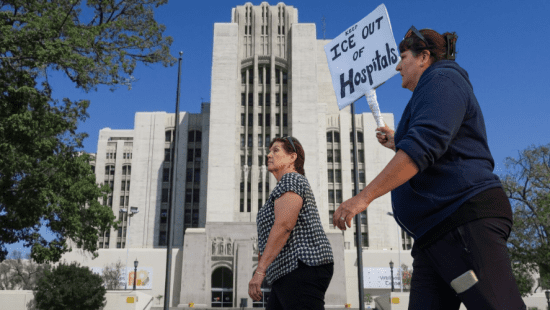Questions are starting to emerge. Raids are at their peak, thousands of workers are choosing not to go to work for fear of ICE agents showing up, and businesses are left alone.
Cash shortages are already present in the state, and the next question is: how will these families pay their rent and food in the coming weeks?
Many organizations have mobilized to secure donations, but this is temporary. The thousands of affected families will need more help if they hope to have a roof over their heads. The situation could be a chain reaction, causing an increase in homelessness.
“We will likely see an uptick of folks being evicted due to non-payment of rent, and the inciting event will be that their loved one was detained and taken by” Immigration and Customs Enforcement, said Henrissa Bassey, an eviction defense attorney with the legal aid nonprofit Bet Tzedek, cited by laist.com.
They want the City Council to pass emergency protections for people impacted by the raids, including an eviction moratorium. The unions say renters make up more than 60% of L.A. residents and many now face the fear of deportation, and many families may not be able to cover rent if a family member was taken into ICE custody or if they have family members choosing to stay home from work out of fear.
They add that the immigration raids are creating unnecessary fear, and there’s a deepening economic crisis fueled by COVID, fires and now ICE raids.
“We know that many tenants will not be able to pay their rent come July 1st,” said Kenia Alcocer with the L.A. Tenants Union. “Why? Because this militarization of our communities, this occupation of our community, this terrorizing of our communities have closed down businesses, have taken away street vendors, have separated families – and then, people cannot pay their rent. They have barely the minimum to survive.”
Relatives of detainees say they’re not sure how they’ll cover their July 1 rent payment.
Other immigrant workers who have not been detained are also losing income as entire workplaces shut down to avoid being targeted in future sweeps.
Immigrant workers were already struggling to afford L.A.’s high rents before this month’s raids. By federal housing affordability standards, 67% of undocumented households are considered to be financially burdened by L.A. rents, according to a 2024 report by the USC Dornsife Equity Research Institute.
Bassey said loss of income triggered by the raids could be devastating for families in a region where Latinos have been one of the fastest-growing segments of the unhoused population.
“This could have the result of increasing homelessness for entire families,” Bassey said.








